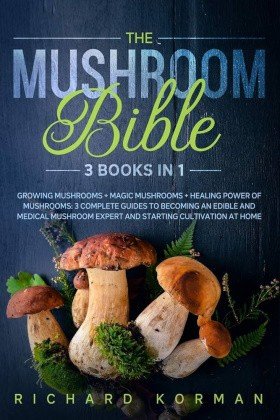CANCER-RELATED EMOTIONAL DISTRESS
"There have been several promising preliminary results of these areas like the treatment of overpowering existential anxiety in people that are facing the end of life, those that have investigations of advanced-stage cancer," Dr Charles Grob, professor of psychiatry at the UCLA David Geffen School of Medicine, advised Healthline.
Dr Charles Grob
Grob, who is also connected with the Heffter Research Institute, has analysed psilocybin widely and wrote a study about the topic, for example, among other items, a pilot study by Trusted Supply in 2011 on psilocybin remedy for stress in people with cancer.
A randomized, double-blind trial out of Johns Hopkins in 2016 discovered that one dose of psilocybin considerably increased wellbeing and reduced depression and stress in people with life threatening cancer diagnosis.
"What we possess the most evidence for is cancer-related depression and worry. That sounds really powerful, and I would be amazed if these results did not hold up," Johnson explained.
COULD PSILOCYBIN BE
ACCEPTED BY THE FDA?
Despite promising study, there is no realistic deadline for when or if, psilocybin will be accepted by the FDA. All three (3) specialists advised Healthline that they knew the material could be harmful for a plethora of different motives if handled incorrectly.
"It'll simply be administered at a practice by especially trained and accredited therapists or doctors. It is never going to be accessible out on the road where people may sell it or require a lot of or require too a lot of their tablets out of a prescription," Greer explained.
Psilocybin affects the cardiovascular system and also may lead to increased blood pressure or irregular pulse. Additionally, it has the most potential to create severe and permanent psychological problems.
"Psilocybin is a lot more emotionally harmful than cannabis, also it is particularly dangerous for a small number of those who've experienced a feeling of psychosis or mania, manic episode, or maybe say, a close relative whose had such issues, since it can activate a psychosis or depressive episode at someone who's vulnerable to this," Greer explained.
“And there is always the chance of a bad trip or adverse encounter while taking the drug. You will find rare but documented instances of people leaping to their deaths or behaving erratically in this manner that threatens themselves or people around them.”
Grob states that if they are "indulged in uncontrolled settings, frankly, all bets are off. You do not understand what you are gonna receive."
However, psilocybin treatment isn't anything like taking shrooms in a celebration. It is meant for a thoroughly controlled environment to make sure that nothing unexpected occurs.
"You name this danger, and we've got excellent mechanics for fixing it,"
Johnson stated.
He explained, "There are dangers, but they're dramatically decreased in clinical research and possibly in authorized medical usage. I would assert that
those dangers and our capacity to tackle them very moderately in contrast to a lot of processes which are routinely utilized in medicine."
Nevertheless, the efficacy and safety of psilocybin treatment should still be satisfactorily demonstrated to the FDA, which, so far, it has not been. While a few are hopeful that psilocybin can follow at the forefront of MDMA treatment and possibly have approval over another five to ten decades, its own pathway is far from apparent and quite uncertain.
When asked if there is a realistic deadline for acceptance, Grob advised Healthline, "I do not think so. Though the research we are speaking about has by and large been quite encouraging and positive, there has not been sufficient study."
"There needs to be FDA-approved clinical study using psychedelics." He also added, "investigating the best way to maximize their therapeutic possible but also attempting to find a better comprehension of the assortment of healthcare consequences, which might be debatable...there are still some concerns which will need to get answered."

SENSORY CHANGES
In a different brain imaging research study using seven volunteers, psilocybin (0.25 mg/kg (oral) intensified feelings and sensory perception, resulting in problems concentrating, dreaminess, and, a reduction of ego boundaries. The sensory alterations ranged from illusions to complicated scenery hallucinations. The majority of them also experienced improved disposition or unhappiness. The consequences which surfaced after 30-40 minutes, also began to diminish after two hours, and totally subsided in the following six months.
ALTERED STATE OF CONSCIOUSNESS
Some believe psilocybin is quite handy for understanding the nature of human comprehension. In a study of eight healthy individuals, psilocybin has been given at different dosages – in quite low (45 μg/kg) to elevated (315
μg/kg). With high doses, psilocybin triggered a more extreme consciousness change, marked with:
Oceanic boundlessness, chills, and depersonalization Ego dissolution, which might provoke pressure
Visual hallucinations and synaesthesia (blending of the senses) Dreaminess and diminished alertness
Due to the borders between self and surroundings was normally advocated as touching or "merging with a greater reality," moderate and large dosages caused hallucinations, although the reduced doses just caused a few changes in understanding.
Just one individual from the high-dose group underwent stress.
Psilocybin triggers sensory modifications and intensifies emotions.
Higher doses may lead to ego dissolution, full scale hallucinations, and also the feeling of oneness with the world.

Amsterdam Smartshop Showcase, Netherlands
PRESENT RESEARCH
Joint Research performed by Zhang in The University of Western Australia and Zhejiang University in China, discovered that ingesting mushrooms and drinking green tea can protect against breast cancer.
Zhang noted that breast cancer has been the most frequent kind of cancer among women worldwide and its speed was growing in both developing and developed nations. The prevalence of cancer within China has been five times greater than in developed nations.
The research hoped to reveal if this may be on account of using fresh and dried mushrooms and green tea in the traditional diet. Mushrooms, mushroom extracts, and green tea had revealed anti-carcinogenic properties that were believed to stimulate immune responsiveness from prostate cancer.

























